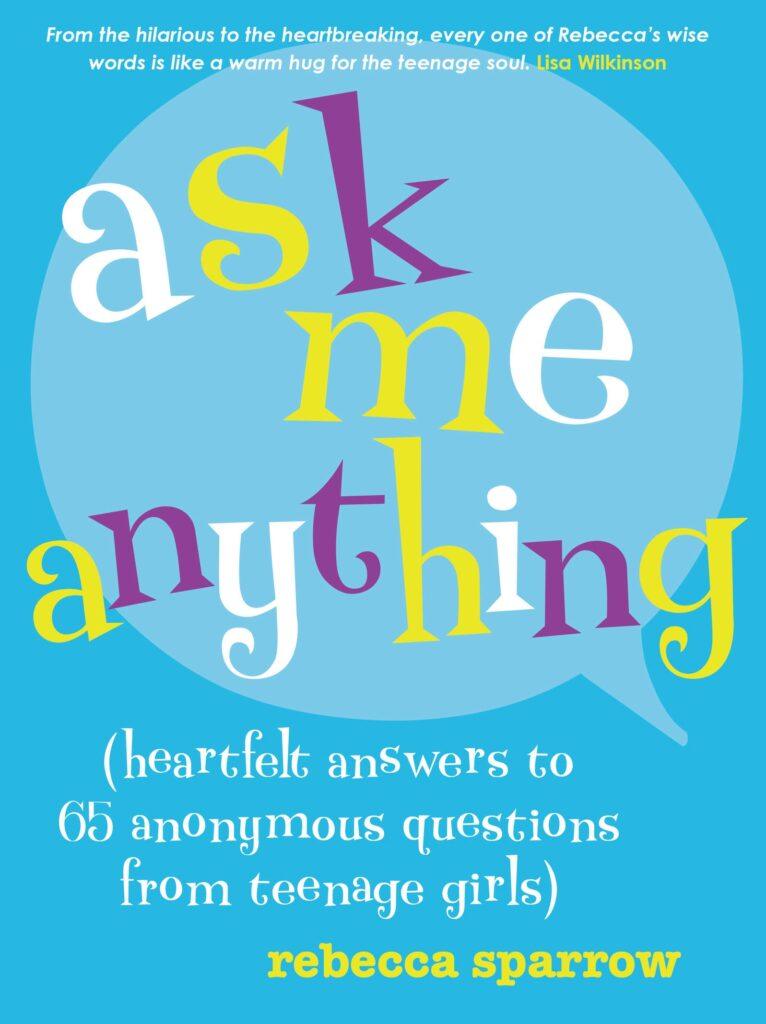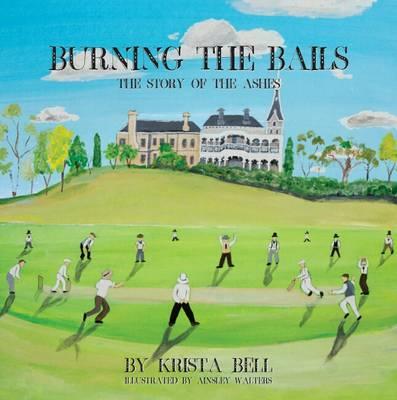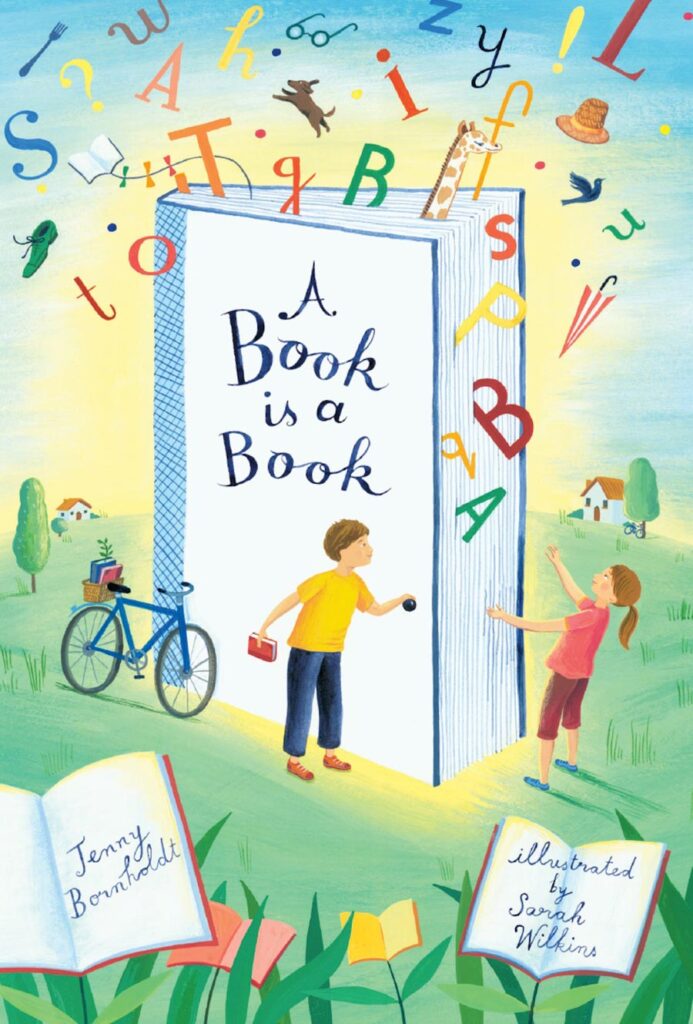Rebecca Sparrow, Ask Me Anything: heartfelt answers to 65 anonymous questions from teenage girls, Penguin, 18 Nov 2015, 192pp., $14.95 (pbk), ISBN: 9780702253874
Rebecca Sparrow’s book is neatly summed up in its title; it answers 65 questions about teenage life. The book is divided into sections on Friendship, Life, Love and Family. Each question and answer takes about two pages. Sparrow’s answers are written in a friendly, casual style, and all her advice centres around open communication, and being nice to yourself and others. For example, she begins her answer to the question “How do you overcome issues with friends?” with “I think the ultimate way to deal with every issue in life is with honesty AND kindness” (25). Although the book is warm-hearted and tackles important topics, its topic, tone and audience suggest that it would work better as a blog than a paper publication.
The tone of the book is colloquial and friendly in a way that sometimes appears to be forced. For instance, Sparrow writes “Do not EVEN TELL ME that you don’t know who Marcia Brady is” (109) and “#icantevenbelievetherearetumblrsdedicatedtohisbandanas” (45), in reference to pop star Harry Styles. As a thirty-something I don’t know whether a teenager would find relate to this tone, though I do know that it will become outdated quickly, unlike a blog.
I appreciate the way that Sparrow includes the voices of many other adults. For instance, for a question about having ADD, Sparrow “wanted you to hear from someone who regularly works with students who have anxiety and ADD” (35), so includes a long quote by an expert, who reassures the teenager that “many people are dealing with mental health issues” (36). In general, the advice in the book is thoughtful and kind, and gives teenagers hope for a brighter future.
Apart from its being a book, my main criticism of Ask Me Anything is that it is overwhelmingly heterosexual. All fifty pages of the “Love” chapter are about boyfriends and guys. The one queer topic is in the family section, and it is “I think I’m gay. Should I come out to my parents?” (149) Any adult who buys this book for a young person should also include a queer positive text for young people such as Queer: The Ultimate LGBT Guide for Teens by Kathy Belge and Marke Biesche, or This Book is Gay, by James Dawson. Remember that every classroom includes some LGBT teenagers who probably also “really want [a] first kiss” (119), and wonder what “what do you if you love someone who doesn’t love you back?” (113)
This book would have been really useful twenty or thirty years ago, but in the age of smart phones and free Wifi I can’t imagine teenagers having these questions and not Googling them. Please direct teens to the friendly corners of the internet: Scarleteen for questions about sexual health and relationships, Rookie for questions about clothes, friends, family, school, and identity, and Everyone is Gay for questions about relationships, identity gender, and sexuality (and for hilarious lip syncing videos).
Reviewed by Lian Beveridge





